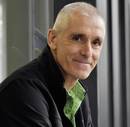Will science answer all questions?

Starting with the ignorant. Philosophers distinguish two types of questions: descriptive or positive questions and normative questions. The positives ask how the world works, seek to describe it and the regulations ask how it should be. Science tries to answer positive questions, but not normative questions. For example, the phrase "infanticide can in some cases provide evolutionary advantages, so in nature it occurs with a certain assiduity" describes a behavior (infanticide) that occurs in nature and points out some evolutionary reasons that have been able to drive it. But do not judge whether such conduct is good or bad, whether it is moral or immoral, because they are normative approaches. Although this distinction is very important, it generates many misunderstandings, since many people tend to mix the natural and the good. It seems that the apologists of nature and the advertisers of yogurt have been forgotten that there are few things more natural than pain, suffering and death. In addition, some believe that scientists, as they have more information, can provide more qualified opinions on regulatory issues. This is a mistake, since the opinions expressed by scientists about them are no more valuable than any other. Therefore, this normative, ethical, etc. approach is out of science, although science can provide relevant information to solve ethical problems.
Continuing with curiosity. Although we limit ourselves to positive questions, science will never answer all questions. Less bad than life without questions is a meal without salt. The main reason not to answer all questions is that each answer usually brings many new questions. For example, what are we? Where do we come from? To the questions, to which many thinkers gave this kind of work, we have answered in the last century: we are hominid primates, of great genetic similarity with chimpanzees, result of an evolution of more than three billion years, and we come from Africa, after a long journey full of incidents. These answers, however, have generated another thousand more interesting questions: What evolutionary pressure caused the divergence between us and the chimpanzee lineages? What genetic changes were important? Did we do it from Africa to Europe, the Middle East or Gibraltar? And many more. It must be borne in mind that, even though the questions do not end, even though the number of questions increases, what we know grows constantly, faster and faster. We are giving answers to the questions. And yes, I know what we are? Where do we come from? some philosophers have wanted to give a more metaphorical meaning, supposedly deeper. But I think that's cheating so that the answer is always in the air constantly changing the question.
If you don't want to know what has been done. The other meaning I have perceived in the journalist's question disturbs me more, because he does not want to know. For some, science does not serve to answer certain questions, not because they depend on values, but because the world has many mysterious corners that official science (as they like to call it) cannot solve in its strict way. I mean paranormal phenomena, occult sciences, esotericism, which only the great spirits of special sensitivity can feel, those phenomena that vulgar and reductionist science will never understand in its simplicity. If the journalist hid something similar after his question, I would tell him that science, like all human activities, is limited and probably many things escape us, but certainly the resolution of the diseases that science has is even stricter, never pseudoscience. We have many unsolved problems, but we are on the road, with the most fruitful procedure to understand reality, with scientific practice, with the joint initiative of thousands of people around the world. There are many of the clearest people in the world, people full of imagination, who live the work with a real passion and in the most competitive environment in which it is located. Some of the results offered by science are revolutionary and the mind faints, for example, with quantum physics. But also, science is constantly judged and learns from mistakes. That is the strongest point that science has as a collective initiative, that is, it constantly judges results through very demanding procedures. Unlike paranormal science gurus.
Do you really think there are many positive questions that science cannot answer? And if science does not respond, what or who do you think will answer them? Aramis Fuster or Iker Jiménez?






